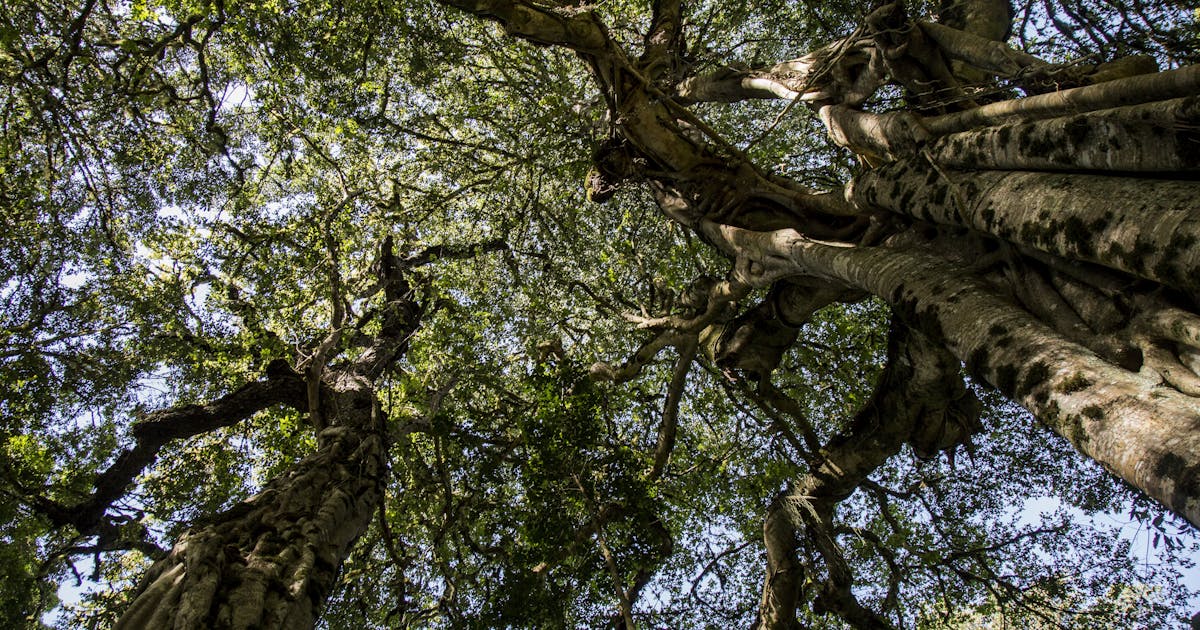Editor’s Note: Climate Week took place from September 23 to September 29. Check Conservation News for coverage of this global forum.
The UN Climate Summit in New York kicks off Monday morning, and the UN Secretary General has made it clear he is not interested in empty talk about solving the climate crisis.
“Don’t come to the summit with beautiful speeches,” Antonio Guterres said last month, Vox reported. “Come
with concrete plans … and strategies for carbon neutrality by 2050.”
On the sidelines of the Summit, a day of discussions and meetings centered around a concrete plan: nature.
Here’s a roundup of some of the discussions Sunday.
It’s the economy, stupid
A common theme of discussions on Sunday: Baby steps to sustainability are not going to save us — it’s time to make fundamental changes to the global economy. “Ending deforestation depends on fundamentally realigning incentives,”
according to Charlotte Streck, director of Climate Focus, a climate consultancy.
“Our markets and financial systems are responsible for our planetary emergency,” echoed Jamison Ervin of the United Nations Development Programme.
Later in the day, a 13-year-old indigenous activist voiced the same sentiment: “Your system is busted.”
Speakers pointed to a recent surge in investor interest in sustainable investments, but progress isn’t happening quickly enough, and moreover, the financial sector has largely underestimated its exposure to climate risks, according to Lauren
Compere, managing director at Boston Common Asset Management.
Furthermore, others noted, many of the standards that would help to “green” investments are entirely voluntary.
All the while, the climate continues to warm as extinctions continue apace — spelling trouble for investors the world over.
“Insurance ends at 4 degrees Celsius,” said Tomas Carruthers, chief executive of Project Heather, an alternative stock exchange, referring to a potentially catastrophic increase in global average temperature. “Nothing is insurable
after that.”
Added Adam Kanzer of BNP Paribas Asset Management: “A future of mass extinction is uninvestable.”
The forest for the trees
A “mysterious negative-emissions technology,” in the words of one speaker, had its moment on Sunday.
The technology that Conservation International scientist Bronson Griscom was referring to was, in fact trees. In a side event on Sunday, Griscom pointed to research — some of it not yet published — to make the case that forest restoration
has massive potential for countries seeking to curb their carbon emissions to meet the goal of the Paris Agreement.
“Photosynthesis is already at a global scale,” he told the audience.
Specifically, Griscom discussed the potential of natural forest regeneration — essentially, letting forests grow back in places where some bits of forest still stand, and then leaving them alone — as a relatively simple and cost-effective
way to combat climate change.
Letting forests regrow is “arguably the most cost-effective approach to forest restoration,”
echoed Manuel Guariguata, a principal scientist at the Center for International Forestry Research (CIFOR).
The challenge, the scientists said, is that when it comes to restoring forests, decision-makers and foresters tend to emphasize tree-planting — which costs significantly more than simply letting nature take its course.
An estimated 2.7 billion hectares globally is estimated to be available for some kind of forest restoration,
said Nikola Alexandre, restoration fellow at Conservation International — as a tactic to address the climate crisis, forest regeneration has much room to grow.
Quotes from the day
“Nature needs to be made more valuable alive than it is dead. When we can help communities thrive, protect our natural heritage and develop sustainable businesses, we’ve done our job.” — Conservation International President Jen Morris,
addressing the UN Climate Action Summit.
“Nearly 50% of the carbon in Mesoamerica is stored in five great forests. I hope that I won’t be back here in the future talking about the 10 medium-sized forests.” — Carlos Manuel Rodriguez, Minister of Environment, Costa
Rica
“To save the Amazon, we don’t need millions of dollars. We need billions of dollars. … It is well worth the investment.” — Daniela Raik, VP, Conservation International
What’s next
Day 1 of the UN Climate Summit is Monday, with a full slate of discussion events on the sidelines. Check this space for more news from New York during Climate Week.
Bruno Vander Velde is the senior communications director for Conservation International
Want to read more stories like this? Sign up for email updates here. Donate to Conservation International here.
Cover image: A cloud forest on top of Chyulu Hills in Kenya, Africa. (© Charlie Shoemaker)
Further Reading

